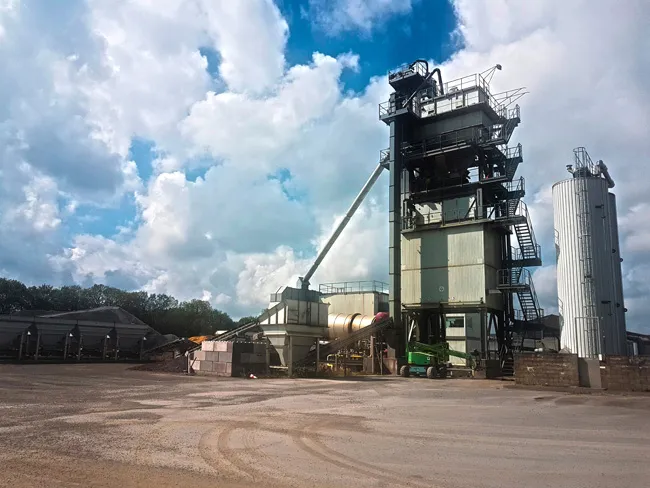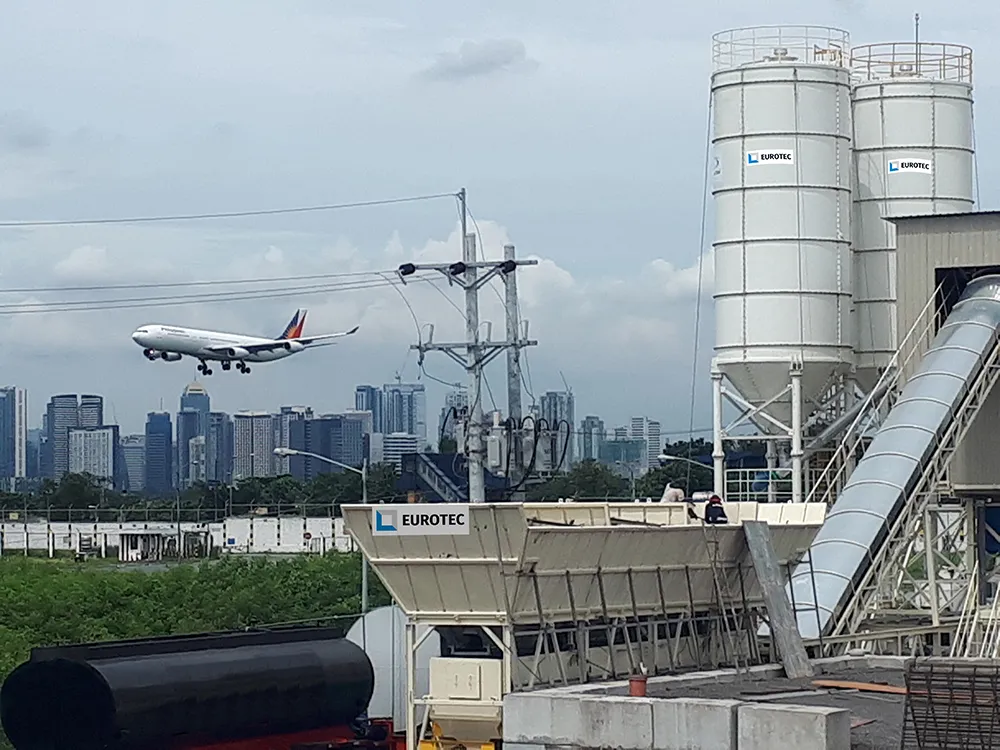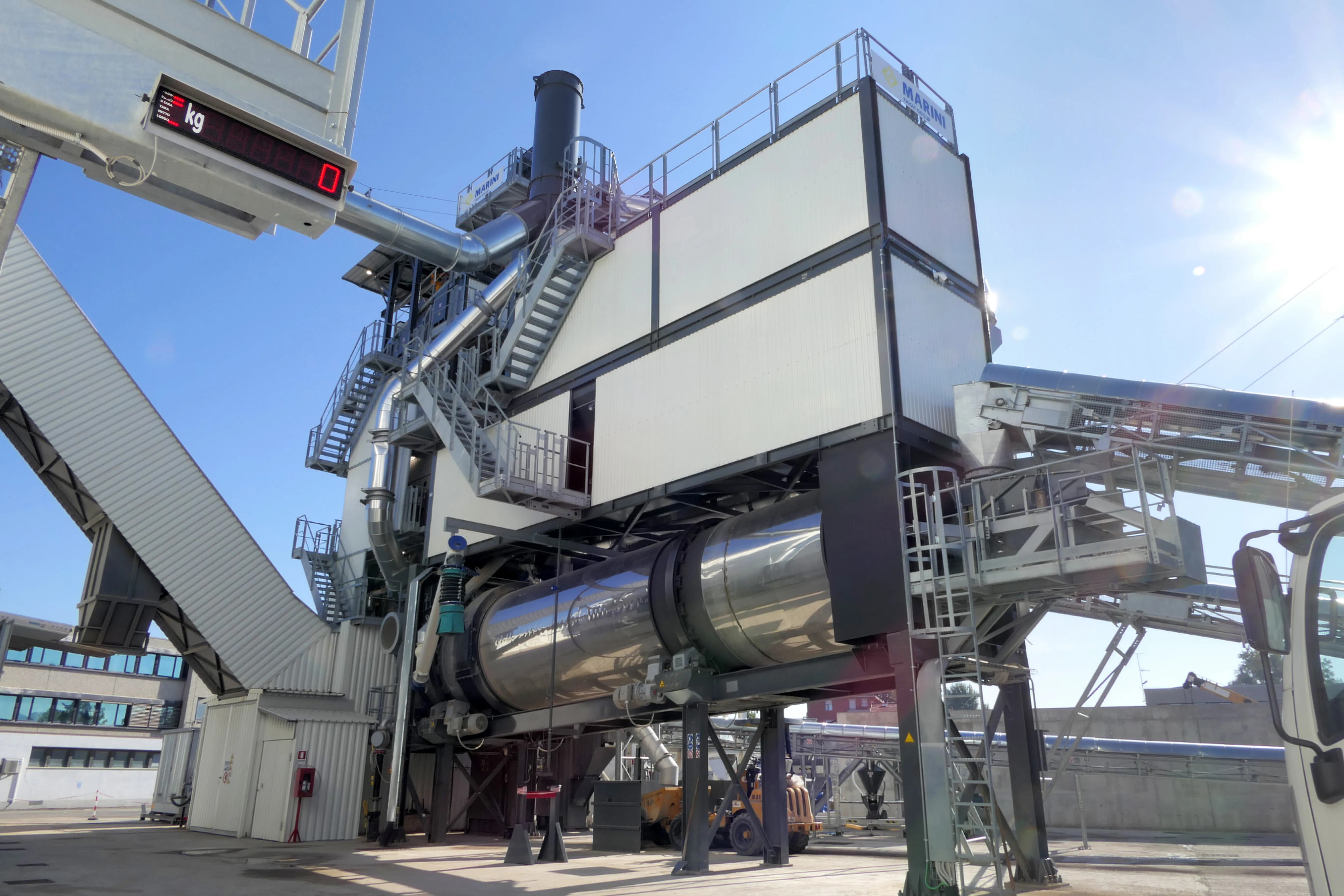GTP is an independent family company owned and managed by the Pruvo brothers at Cauchy-à-la-Tour near Béthune in the Hauts-de-France region, north-east France. Housed in a former brickworks, the firm specialises in recycling materials with a focus on road residues.
With the aim of diversifying its activities, GTP turned its attention to ready-mixed concrete and production of treated gravel for local demand and also to meet its own production requirements.
Concrete plant performance specifications were clear. GTP wanted a high-quality stationary plant with capacity for expansion. The company also had to offer a variety of technical options as well as short delivery periods.
Following a tender, GTP chose
Designed to ensure production of standard concrete at 105m³/hour, mixed in 30 seconds, the plant has four 80m³ aggregate storage silos. To expand the installation, the siting study envisages an additional aggregate silo in the near future to provide 100m³ in total, as well as a fourth 60tonne binder silo.
The aggregates are transferred to the horizontal-shaft mixer with a volume of 2m³ via a skip. The mixing scaffolding is entirely galvanised to provide high-grade protection against corrosion.
Very little maintenance work is required for the plant and in particular the mixer. Its trough shielding is fitted without screws, so servicing is kept to a minimum.
The Ammann’s automatic control system called as1 provides production support and follow-through. “The as1 is an effective cornerstone of our efforts to ensure quality. This technology collects and processes data and key indicators that enable us to offer our customers reliable production while optimising consumption of raw materials and energy,” said Pruvo.
“For individual customers and multinationals alike, our plant is ready to provide a vast number of formulas for all types of use, ranging from standard concrete to technical concrete varieties and the new decorative concretes.”
Ammann CBS 105 Elba mixing plant in the Hauts-de-France region
A new Ammann CBS 105 Elba concrete mixing plant in the Hauts-de-France region
GTP is an independent family company owned and managed by the Pruvo brothers at Cauchy-à-la-Tour near Béthune in the Hauts-de-France region, north-east France. Housed in a former brickworks, the firm specialises in recycling materials with a focus on road residues.
With the aim of diversifying its activities, GTP turned its attention to ready-mixed concrete and production of treated gravel for local demand and also to meet its
July 10, 2018
Read time: 2 mins
A new Ammann CBS 105 Elba concrete mixing plant in the Hauts-de-France region









